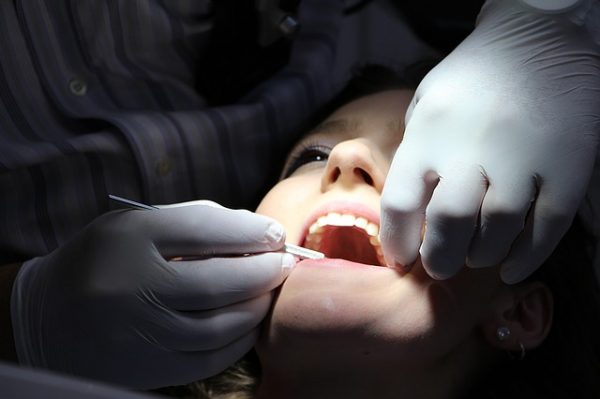
rgerber / Pixabay
Do you ever clench your jaw when you’re feeling stressed? Grind your teeth in your sleep? Among other problems, these habits could lead to a cracked tooth. How would you know if your tooth is cracked? What could you do about it?
The answers from Dr. Paul Best, DDS. He’s a prosthodontist at Prosthodontics Associates in Portland, Maine. What are prosthodontists? According to the American College of Prosthodontists, they are “THE recognized experts when anything needs to be replaced in your mouth. This can range from a single tooth, multiple teeth, or all teeth and gums in the mouth.”
Now let’s find out what Dr. Best says it means when your tooth is cracked.
What is a cracked tooth?
A cracked tooth can have a visible or an invisible crack. Cracks may be superficial (crazing) or so deep a tooth can’t be restored.
What are signs or symptoms of a cracked tooth?
Symptoms range from severe pain to an unexplainable, vague feeling across many adjacent teeth. The most common symptoms are heightened tooth sensitivity to hot and/or cold and difficulty chewing.
Signs of cracked teeth — in addition to the crack itself — are tissue inflammation, redness, and swelling. Often the symptoms cannot be isolated to a specific tooth. Cracks are often seen radiating from a dental restoration but are common in unrestored teeth as well.
What causes a cracked tooth?
Teeth may crack due to acute, one-time traumatic events or because of long-term chronic grinding or clenching habits.
Traumatic injuries that crack teeth include:
- chewing on ice
- biting on an unexpected cherry pit
- motor vehicle accident
Chronic habits of grinding or clenching the teeth together are additive and often lead to cracks. Heavily filled or root canal treated teeth are structurally weaker and more susceptible to cracking.
How is a cracked tooth diagnosed?
Careful observation of patient symptoms, clinical exam, and dental history are helpful in the diagnosis of a cracked tooth. Often a tooth sleuth (a dental instrument) is used to identify a specific cracked tooth and even pinpoint a more precise crack location on a tooth. Periodontal probing, digital x-rays, and Cone Beam Computer Tomography (CBCT) are helpful aids as well.
What to do about a cracked tooth?
There have been many proposed treatments to fixing cracked teeth. Proven predictable treatments are dental crowns and onlays. Initially, a tooth will be fitted with a temporary dental crown. If the tooth responds to this procedure, a permanent crown would be fabricated and cemented in place. If the temporary crown doesn’t provide relief from the cracked tooth, it may be necessary to do a root canal. If a tooth can’t be restored, the next step might be an implant crown or bridge.
How can you prevent a cracked tooth?
Custom night guard appliances help prevent cracked teeth.
You can connect with Dr. Best or his associates at Prosthodontics Associates. And let me know if you have any more questions about teeth or other health-related issues.

Leave A Comment